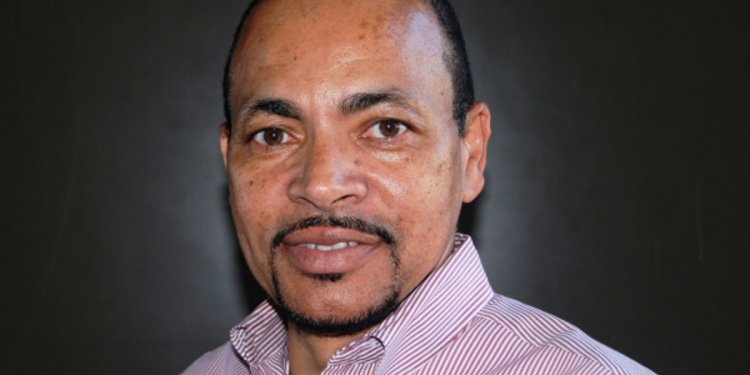
Electronics Technician interview questions
1. What is Electronic?
The study and use of electrical devices that operate by controlling the flow of electrons or other electrically charged particles.
2. What is communication?
Communication means transferring a signal from the transmitter which passes through a medium then the output is obtained at the receiver. (or)communication says as transferring of message from one place to another place called communication.
3. Different types of communications? Explain.
Analog and digital communication.
As a technology, analog is the process of taking an audio or video signal (the human voice) and translating it into electronic pulses. Digital on the other hand is breaking the signal into a binary format where the audio or video data is represented by a series of "1"s and "0"s.
Digital signals are immune to noise, quality of transmission and reception is good, components used in digital communication can be produced with high precision and power consumption is also very less when compared with analog signals.
4. What is sampling?
The process of obtaining a set of samples from a continuous function of time x(t) is referred to as sampling.
5. State sampling theorem.
It states that, while taking the samples of a continuous signal, it has to be taken care that the sampling rate is equal to or greater than twice the cut off frequency and the minimum sampling rate is known as the Nyquist rate.
6. What is cut-off frequency?
The frequency at which the response is -3dB with respect to the maximum response.
7. What is pass band?
Passband is the range of frequencies or wavelengths that can pass through a filter without being attenuated.
8. What is stop band?
A stopband is a band of frequencies, between specified limits, in which a circuit, such as a filter or telephone circuit, does not let signals through, or the attenuation is above the required stopband attenuation level.
9. Explain RF?
Radio frequency (RF) is a frequency or rate of oscillation within the range of about 3 Hz to 300 GHz. This range corresponds to frequency of alternating current electrical signals used to produce and detect radio waves. Since most of this range is beyond the vibration rate that most mechanical systems can respond to, RF usually refers to oscillations in electrical circuits or electromagnetic radiation.
10. What is modulation? And where it is utilized?
Modulation is the process of varying some characteristic of a periodic wave with an external signals.
Radio communication superimposes this information bearing signal onto a carrier signal.
These high frequency carrier signals can be transmitted over the air easily and are capable of travelling long distances.
The characteristics (amplitude, frequency, or phase) of the carrier signal are varied in accordance with the information bearing signal.
Modulation is utilized to send an information bearing signal over long distances.
11. What is demodulation?
Demodulation is the act of removing the modulation from an analog signal to get the original baseband signal back. Demodulating is necessary because the receiver system receives a modulated signal with specific characteristics and it needs to turn it to base-band.
12. Name the modulation techniques.
For Analog modulation-AM, SSB, FM, PM and SM
Digital modulation-OOK, FSK, ASK, Psk, QAM, MSK, CPM, PPM, TCM, OFDM
13. Explain AM and FM.
AM-Amplitude modulation is a type of modulation where the amplitude of the carrier signal is varied in accordance with the information bearing signal.
FM-Frequency modulation is a type of modulation where the frequency of the carrier signal is varied in accordance with the information bearing signal.
14. Where do we use AM and FM?
AM is used for video signals for example TV. Ranges from 535 to 1705 kHz.
FM is used for audio signals for example Radio. Ranges from 88 to 108 MHz.
15. What is a base station?
Base station is a radio receiver/transmitter that serves as the hub of the local wireless network, and may also be the gateway between a wired network and the wireless network.
16. How many satellites are required to cover the earth?
3 satellites are required to cover the entire earth, which is placed at 120 degree to each other. The life span of the satellite is about 15 years.
17. What is a repeater?
A repeater is an electronic device that receives a signal and retransmits it at a higher level and/or higher power, or onto the other side of an obstruction, so that the signal can cover longer distances without degradation.
18. What is an Amplifier?
An electronic device or electrical circuit that is used to boost (amplify) the power, voltage or current of an applied signal.
19. Example for negative feedback and positive feedback?
Example for ve feedback is -Amplifiers And for +ve feedback is Oscillators
20. What is Oscillator?
An oscillator is a circuit that creates a waveform output from a direct current input. The two main types of oscillator are harmonic and relaxation. The harmonic oscillators have smooth curved waveforms, while relaxation oscillators have waveforms with sharp changes.
21. What is an Integrated Circuit?
An integrated circuit (IC), also called a microchip, is an electronic circuit etched onto a silicon chip. Their main advantages are low cost, low power, high performance, and very small size.
22. What is crosstalk?
Crosstalk is a form of interference caused by signals in nearby conductors. The most common example is hearing an unwanted conversation on the telephone. Crosstalk can also occur in radios, televisions, networking equipment, and even electric guitars.
23. What is resistor?
A resistor is a two-terminal electronic component that opposes an electric current by producing a voltage drop between its terminals in proportion to the current, that is, in accordance with Ohm's law:
V = IR.
25. What is inductor?
An inductor is a passive electrical device employed in electrical circuits for its property of inductance. An inductor can take many forms.
26. What is conductor?
A substance, body, or device that readily conducts heat, electricity, sound, etc. Copper is a good conductor of electricity.

















